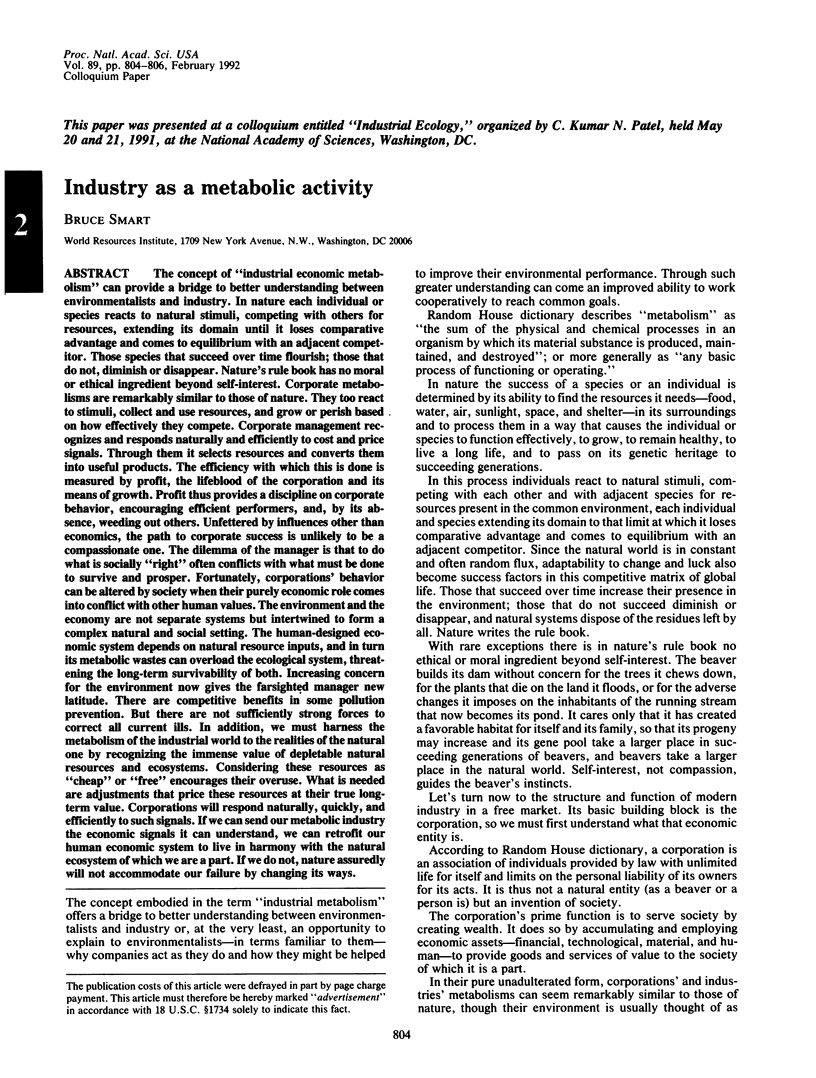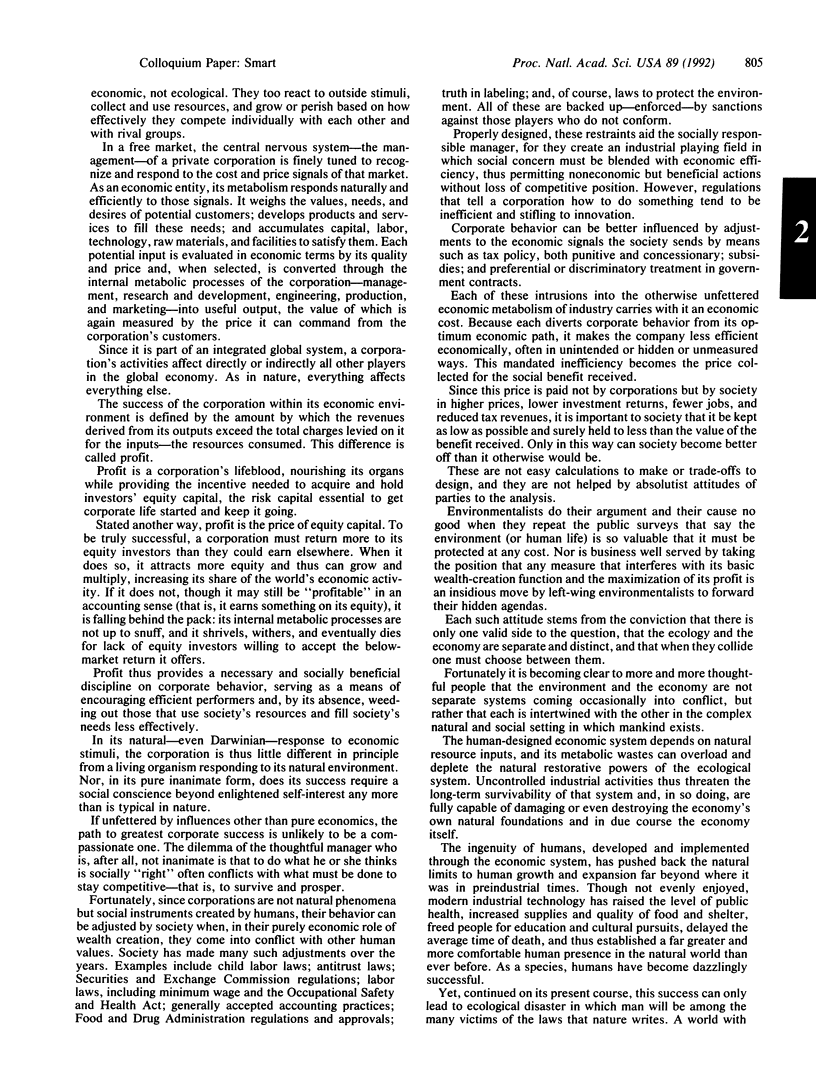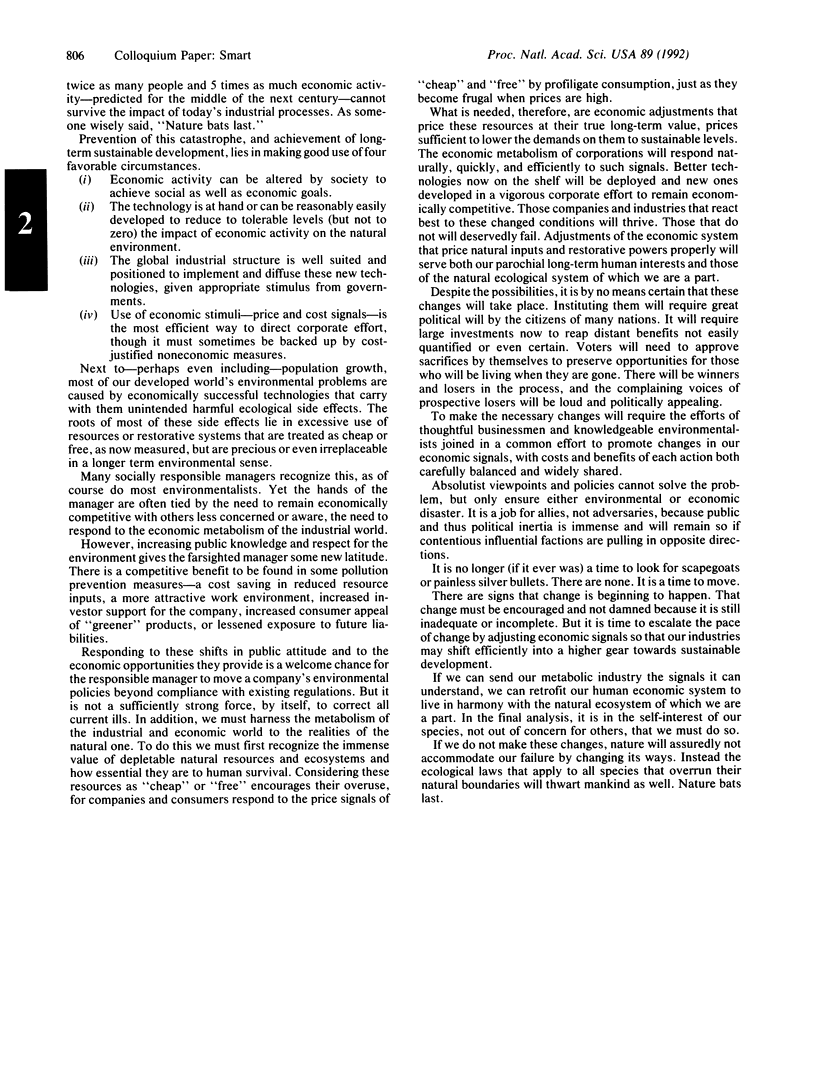Abstract
The concept of "industrial economic metabolism" can provide a bridge to better understanding between environmentalists and industry. In nature each individual or species reacts to natural stimuli, competing with others for resources, extending its domain until it loses comparative advantage and comes to equilibrium with an adjacent competitor. Those species that succeed over time flourish; those that do not, diminish or disappear. Nature's rule book has no moral or ethical ingredient beyond self-interest. Corporate metabolisms are remarkably similar to those of nature. They too react to stimuli, collect and use resources, and grow or perish based on how effectively they compete. Corporate management recognizes and responds naturally and efficiently to cost and price signals. Through them it selects resources and converts them into useful products. The efficiency with which this is done is measured by profit, the lifeblood of the corporation and its means of growth. Profit thus provides a discipline on corporate behavior, encouraging efficient performers, and, by its absence, weeding out others. Unfettered by influences other than economics, the path to corporate success is unlikely to be a compassionate one. The dilemma of the manager is that to do what is socially "right" often conflicts with what must be done to survive and prosper. Fortunately, corporations' behavior can be altered by society when their purely economic role comes into conflict with other human values. The environment and the economy are not separate systems but intertwined to form a complex natural and social setting. The human-designed economic system depends on natural resource inputs, and in turn its metabolic wastes can overload the ecological system, threatening the long-term survivability of both. Increasing concern for the environment now gives the farsighted manager new latitude. There are competitive benefits in some pollution prevention. But there are not sufficiently strong forces to correct all current ills. In addition, we must harness the metabolism of the industrial world to the realities of the natural one by recognizing the immense value of depletable natural resources and ecosystems. Considering these resources as "cheap" or "free" encourages their overuse. What is needed are adjustments that price these resources at their true longterm value. Corporations will respond naturally, quickly, and efficiently to such signals. If we can send our metabolic industry the economic signals it can understand, we can retrofit our human economic system to live in harmony with the natural ecosystem of which we are a part. If we do not, nature assuredly will not accommodate our failure by changing its ways.
Full text
PDF





